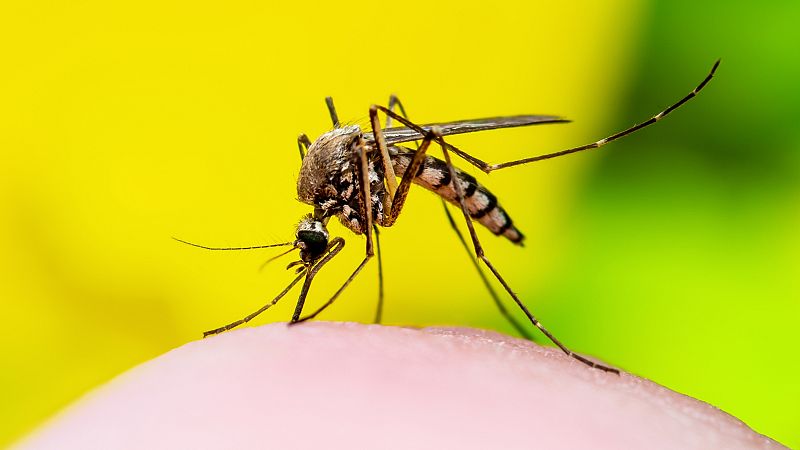
West Nile virus has been detected in mosquitoes in the United Kingdom for the first time, as rising temperatures raise the risk that vector-borne diseases will become more common in Europe.
There have been no human infections in the UK so far, and the risk to the general public is "very low," according to the UK Health Security Agency (UKHSA).
But the agency is ramping up surveillance and advising doctors to test certain patients whose health issues could be linked to the virus.
Fragments of West Nile virus were found in two groups of mosquitoes collected in wetlands in Nottinghamshire in July 2023, the agency said. Another 198 pools of mosquito samples collected in the same area tested negative for the virus.
"While this is the first detection of West Nile virus in mosquitoes in the UK so far, it is not unexpected as the virus is already widespread in Europe," Dr Meera Chand, UKHSA’s deputy director for travel health, zoonoses, emerging infections, respiratory and tuberculosis, said in a statement.
West Nile, which is in the same family of viruses as dengue and yellow fever, is often found in birds and spreads through mosquito bites. People can also be infected, though about 80 per cent will have no symptoms.
The virus was first identified in Uganda in 1937, and it’s commonly found in Africa, the Middle East, North America, and West Asia.
Spread linked to climate change
It has appeared more frequently in northern and western Europe in recent years as warmer weather tied to climate change makes the region more hospitable for mosquitoes.
"The detection of West Nile virus in the UK is part of a wider changing landscape, where, in the wake of climate change mosquito-borne diseases are expanding to new areas," Dr Arran Folly, an arbovirologist at the UK’s Animal and Plant Health Agency (APHA), said in a statement.
In places where West Nile virus is more common, people tend to be infected in the summer months. Most people either have no or mild, flu-like symptoms, but in rare cases it can lead to neurological issues, such as brain swelling or meningitis.
In light of the virus' detection in the UK, doctors are being advised "as a precaution" to run additional tests on people with unexplained brain swelling, or encephalitis, the UKHSA said.
There is no vaccine or targeted treatment for West Nile virus.
James Logan, a professor of medical entomology at the London School of Hygiene and Tropical Medicine, called on public health and veterinary authorities to boost their surveillance to "stay one step ahead" of the virus.
"This is a moment to recognise that the UK is no longer immune to some diseases once considered 'tropical,'" Logan said in a statement.
"We are entering an era where we must learn to live smarter in a bug’s world".







